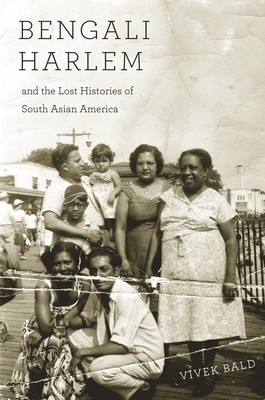
- We will send in 10–14 business days.
- Author: Vivek Bald
- Publisher: Harvard University Press
- ISBN-10: 0674503856
- ISBN-13: 9780674503854
- Format: 15.5 x 23.4 x 2 cm, softcover
- Language: English
- SAVE -10% with code: EXTRA
Bengali Harlem and the Lost Histories of South Asian America (e-book) (used book) | bookbook.eu
Reviews
Description
Winner of the Theodore Saloutos Memorial Book Award
Winner of the Association for Asian American Studies Book Award for History
A Times Literary Supplement Book of the Year
A Saveur "Essential Food Books That Define New York City" Selection
EXTRA 10 % discount with code: EXTRA
The promotion ends in 15d.19:26:09
The discount code is valid when purchasing from 10 €. Discounts do not stack.
- Author: Vivek Bald
- Publisher: Harvard University Press
- ISBN-10: 0674503856
- ISBN-13: 9780674503854
- Format: 15.5 x 23.4 x 2 cm, softcover
- Language: English English
Winner of the Theodore Saloutos Memorial Book Award
Winner of the Association for Asian American Studies Book Award for History
A Times Literary Supplement Book of the Year
A Saveur "Essential Food Books That Define New York City" Selection


Reviews